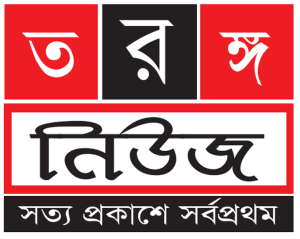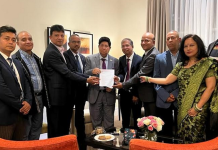Prosecutors play the central role in criminal justice system. Prosecutor represents the state. But, in its real sense, prosecutors are not the representative of the victims not of the accused, even not of the government, they are the spokesperson rather agent of the people of the country, they review the evidence collected by law enforcement and takes a decision whether to drop the charge on file to present in the court. In some countries like USA prosecutions also engage in investigation also their sole purpose is to assist to deliver justice.
The lawyers who defend the accused are called as defence lawyer. They are either hired by the accused or in some special circumstances are assigned by the court. The defence lawyer’s role is to argue on behalf of the defendant for his acquittal.
In most of the time, prosecution is considered as the synonymous to lawyer, there are differences between these two. According to Merriam-Webster dictionary a prosecutors institutes a proceeding or represents the state in a criminal proceedings as defendant in UK there is the opportunity to become a prosecutor without being a lawyer.
Though the basic definition and work of prosecutor is almost same all around the world, but it differs from country to country depending upon whether they follow common law adversarial system or inquisitorial system. In some countries, the prosecutor are involved in investigation process in other there is no interference. There are some countries where prosecutor defend any civil actions on them as well. So, in general sense, a prosecutor can be called the advocate representing the government of that country in any criminal prosecution and sometime in civil matters their duty is to check the justice is not denied and properly provided to the accused as well, following Latin term ‘Audi alteram partem’ as no one should remain unheard. Article 11 of the UN’s declaration provides that the accused shall be provided with the chance to prove his innocence as presumption of innocence is a universal right. United Nations provides some guidelines for the role of prosecutor in order to keep intact human rights.
1. The prosecutors shall dignify their position as they are adopted by the state.
2. Prosecutors shall not delve into any such arbitrary or fraudulent practice that might harm in the interest of the case.
3.Prosecutors shall have the right to take part in the public discussion regarding legal matters.
4. Prosecutor shall be given protection if conditions demand so.
5. Prosecutor shall work keeping public interest intact.
6. Prosecutor shall keep matters confidential unless required.
7. Prosecutor shall refuse to use evidence which is recruited unlawful method such as torture, inhuman means against the suspects.
8. Prosecutor shall cooperate with all other bodies working on the case.
In Bangladesh, prosecution are appointed by the ministry of law formed among practicing lawyers. The prosecution and investigating branches are completely detached. Public prosecutors in Bangladesh have no control over the investigation, section 157 and 159 of CrPC provide such power to the magistrate. At the initial stage, the public prosecute is empowered to decide whether to prosecute a case or not. As a minor player in the criminal justice system, the prosecution service maintains a relationship with all agencies. In Bangladesh, at district level, a public prosecutor and special public prosecutor are appointed in every district, supported by a certain numbers of assistants depending on the districts size and population. They are assigned to a specific territorial jurisdiction and are not transferable.
In Supreme Court (High Court division and Appellate division), Attorney General is appointed and supported by a certain number of additional, Deputy and assistant attorney general. Attorney General of Bangladesh can move any of the courts in the country. In performing their duties, the prosecution exercise independent discretion. They can withdraw only charges against an accused with the permission of court. In Bangladesh, although the public prosecutor has no legal obligation to assist victims of crime and witnesses they do their best to ensure that victims and witnesses are protected. Prosecutors also try to convince the count to order compensation or restitution for the victim.
In India, public prosecutors were attached to the police department and they were responsible to the District Superintendent to police before the enactment of the criminal procedure code of 1973. After the new code of criminal procedure came into force in 1973, the procedure wing has been totally detached from the police department. Section 24 of the CrPC describes about the appointment of public prosecutor. The prosecution wing in a state is headed by an officer designated as the Director of prosecution who assisted by a number of Additional Directors etc.
In the district level, there are two levels of public prosecutors, i.e. the Assistant public prosecutor of Grade – I & the Grade – II, they appear in the court of Magistrates. They are appointed through a competitive examination conducted by the state public service commission. On promotion they can go up to the level of additional director of prosecution. However, they do not appear in the session’s court.
In Magistrate Courts, the Director of prosecutions is responsible for prosecute of cases. But the prosecutors who prosecute case in session courts do not fall under the jurisdiction of the Director of prosecution. The District Magistrate prepares a panel of suitable lawyers in consultation with the sessions judge to be appointed as public prosecutors.
In High court, the state government appoints public prosecution with the consultation with the High court as per section 24 of CrPC. The Advocate General is the most senior law officer in a state. The Advocate general is appointed by the governor of the state under Article 165 of the Constitution. He is a constitutional authority and can move any court in the state. The most senior law officer is the Attorney General for India. Attorney General is a presidential appointee under Article 76 of the constitution. He can address any court in the country.
To be appointed as public prosecutions, the lawyers need to be experienced with a minimum of 7 years. They are not permanent employees. They are paid an honorarium.
The CBI has a legal division. It is leaded by the Legal advisor. He is a deputationst from the ministry of Law of central government. The legal Advisor is assisted by a number of law officers who are permanent employees of the CBI as Additional Legal Advisor, Deputy Legal Advisors, senior Public Prosecutors, Public Prosecutors, and Assistant Public Prosecutors etc. Their advice is taken seriously by the executive CBI officers.
In India, the investigation of crimes is the domain of he police and, in general, it is a common assumption that the work of prosecutor begins after the police is done with the investigation and the charge sheet is filed. But, prosecutors play an important role in the pre-trial stage as obtaining on arrest warrant directed to one or more police officers under section 70 of the CrPC and obtain search warrant to search premises for collection of evidence and document crucial to investigation under section 93 of the code of criminal procedure. The prosecutor also plays and advisory role in suggesting to the police regarding the feasibility of proceeding with a case and obtaining custody of the accused for interrogation of the accused under section 167 of the CrPC.
The significance of the role of prosecutor in trial stage is very much important. In criminal jurisprudence, the accused is presumed to be innocent until proven guilty. It is the responsibility of the prosecution to prove the guilt of an accused beyond any reasonable doubt. A charge sheet is filed against the accused under section 173(2) of the CrPC and cognizance of the offence is taken by the court under section 190 of the CrPC and then the trail process begins. The prosecutor need to prove all evidence that has been gathered by the investigation which includes oral testimonies of persons recorded by police, documentary evidence gathered by the investigation team. The prosecutor argues for an effective bail hearing of an accused keeping in mind the probability of an accused to abscond, tamper or destroy evidence and threaten witnesses. They have to lead forensic evidence in case that involves the requirement of providing facts through scientific methods. The prosecutor plays an important role in helping the judge to arrive at reasonable and just decision regarding the punishment to be awarded to the accused in case of conviction. Prosecutor should not seem eager but rather ensure both the victim and accused right are safe guarded.
The founder of the National Judicial Academy of India Mr N.R. Madhava Menon expressed the prosecution system as the weakest link in criminal justice system in India. From his views, this has resulted a very lower conviction rate. In Thakur Ram vs State of Bihar, the Apex count held that the motive of appointing a prosecutor is to represent that victim right as crime against victim is considered as crime against society. So, no private motivates like vengeance etc. can use this means. In Mukul Dala vs. UOI , the supreme court has stated that in India the public prosecutor’s under for the court and the state to establish just for the social purpose. In Radheshyam vs. state of M.P. & other, the court has stated that a special public prosecutor can be appointed by the state whose remuneration shall also be paid by the state to maintain its integrity. The government cannot appointed prosecutors directing to get remunerated by the private party.
The USA is the nation where the public elects prosecutors. Prosecutors are involved in the whole investigating the crime process and enjoy the benefit of interrogation and interviewing the witnesses as well. Every state has its own Attorney General who is also is an elected representative. All the state Attorneys are members of the National Association of Attorney General a national institution which facilitates inter-state cooperating and conducts policy research and training programs for attorney and their staff. Although the police have the power to make arrest but the charging capacity falls within the ambit of prosecutor. In USA the prosecutors are too much powerful in the administration of criminal justice system. One example of prosecutor misusing this power in the Kemba Smith case where she was sentence to 24.5 years imprisonment as charges against her were framed to be included but instead it was her husband. Prosecutors have an upper hand on what the court will decided, it is believed. The prosecution enjoys a wide range of power that has more overwhelming impact on the judiciary in USA.
The defense lawyer’s role is to argue on behalf of the defendant. The defendant has no burden of proof. That is, the defendant need not prove his innocence. It is enough simply to point out ways in which the state has not established guilt, for instance, an eyewitness has poor eyesight or an accuser has a motive to lie.
The defense lawyer presents all evidence to rebut the prosecutor’s arguments and challenges all questionable assertions of facts by the prosecutor to ensure that the high burden of proof is met. The defense lawyer challenges procedural errors and may seek to have charges dismissed because of unreliable evidence or testimony. The defense lawyer also informs the defendant of his rights and defends those rights to ensure they have not been violated.
It is important for a defendant to obtain the help of a defense lawyer as early as possible. There are many actions a defense lawyer can take to protect and aid a defendant in the early stages that may not be possible as the case progresses. The defense lawyer can inform the defendant of his rights at the outset like such as the right to remain silent, so that the defendant is aware of them and can benefit from them. The defense lawyer can seek the temporary release of the defendant through bail, allowing the defendant to better assist in the preparation of a defense. The defense lawyer works with the defendant and other witnesses to understand the defendant’s version of events and to determine an appropriate defense as, self-defense, misidentification etc.
In a criminal justice system, the state is asserting its Ultimate authority over a single civilian. So, different types of safeguards are given to the accused that laid down by law and can be exercised through a defense lawyer to protect the rights of accused and prevent abuse of state’s power.
Sudip Chandra Halder
LLB [Honours], University of London, UK.
LLM[ Pursuing in Criminal & Security Law]
Email Address: sudipnipan@yahoo.com,





